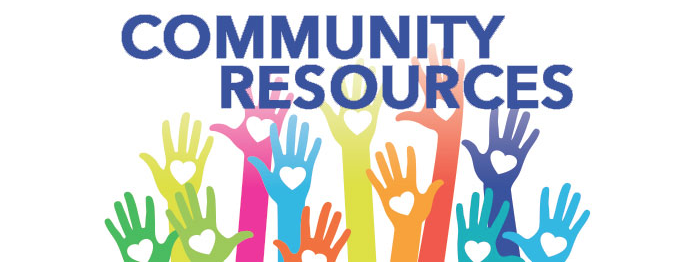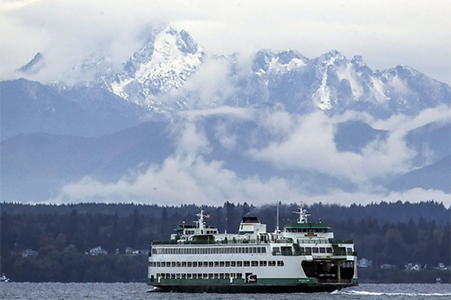||| BY MATTHEW GILBERT, ORCASONIAN OP/ED REPORTER |||
On January 24, Kendra Smith, SJC Director of Environmental Stewardship, briefed the County Council on the long-awaited launch of the “Sustainable Tourism Management Plan” process. It’s goal: “To deliver a balanced approach and plan of action to tourism that meets the needs of our community, environment, and economy.” Given how long it has taken to get it on the runway – let alone off it – the planning group will have its challenges. Councilman Jamie Stephens admitted as such when he noted that “It took a while to get the right group together” to address the many issues and differences of opinion. (Stephens is chair of the Lodging Tax Advisory Committee).
Also recognizing the passions and suspicions that hover around anything having to do with “tourism management,” Cindy Wolf said, “I’ve heard concerns about the assumptions driving the plan. Is there an assumption that tourism should be our primary economic mover? Is this about increasing tourism?”
Responded Smith: “We haven’t established any assumptions at this point but do recognize that tourism is a major economic driver. We also recognize that different islands have different degrees of tolerance for tourism. Our goal is to get the issues out on the table and come to some agreement.”
There has been plenty of research on the many impacts of tourism on this unique archipelago, conveniently available on the plan’s website and summarized in this February 2020 Orcasonian article. The data tell the story of a powerful driver of economic activity and its collateral impacts on a wide range of island life, with peak season pressures pushing the edge and seasonal businesses scrambling to find – and house – labor. The tourism industry is, in many ways, a very mixed blessing almost no matter who you ask.
The plan’s architects hope to reconcile these conflicts, guided by an “ad hoc” committee made up of LTAC members Laura Saccio, Janet Baltzer, and Faith van de Putte (representing business, nonprofits, and the ag sector), Deborah Hoskinson, director of the SJC Visitors Bureau, Elexis Fredy, superintendent of San Juan Island’s National Historical Park, and Smith, all of whom signed off on hiring three firms to drive the process:
- Cascadia Consulting Group to facilitate community engagement sessions and website/outreach support.
- Confluence Consulting as technical experts in natural resources/land management (which did most of the research referenced above).
- Pandion Consulting as technical experts in sustainable tourism management.
Smith noted that “We will be working with those consultants to determine the need for additions to that committee to help us advance the planning effort.” The $200,000 cost of the project will be funded by LTAC money, “including Angela Broderick’s time as project manager” added Smith. (Broderick is Climate and Sustainability Coordinator within the Department of Environmental Stewardship.)
According to the committee’s project summary document, the Sustainable Tourism Management Plan process will be divided into two phases:
- Phase 1 will develop a shared community vision and goals for Sustainable Tourism in the San Juan Islands through public engagement, utilizing guidance and technical expertise from our consultants.
- Phase 2 will address data and analysis gaps identified in Phase 1, solidify specific strategies, and create the action plan utilizing the findings from the community sessions.
Phase 1 is expected to wrap up in summer 2022, at which point we will summarize outcomes from the community engagement sessions and synthesize recommendations for the master plan. Final Plan approval and adoption is expected to occur in early 2023.
Final 2021 Sales and Lodging Tax Revenue In
As provided by SJC Treasurer Rhonda Pederson, 2021 Quarter 4 lodging and sales tax data (representing business activity from August through October) show more modest increases compared to earlier in the year, with lodging tax revenue up 15% over Q4 2019 and sales tax revenue up 20%. Still, in a year-to-year comparison, 2021 lodging and sales tax revenues overall were up 35% and 26% respectively over 2019. Are these record-breaking numbers an anomaly or the new norm? 2022 promises to be another interesting year . . .
**If you are reading theOrcasonian for free, thank your fellow islanders. If you would like to support theOrcasonian CLICK HERE to set your modestly-priced, voluntary subscription. Otherwise, no worries; we’re happy to share with you.**








I hope that the LTAC Phase 1 process (“Phase 1 will develop a shared community vision and goals for Sustainable Tourism in the San Juan Islands through public engagement, utilizing guidance and technical expertise from our consultants.”) ensures that the ‘shared community vision’ is entirely consistent with the San Juan County Comp Plan Vision Statement. The Comp Plan (think: “we”) should not be subordinated to a particular economic activity (think: “me”). The tourism vision needs to embrace and honor the County Vision (“we”).
I am hoping that during this process the local historical museums will be invited to share the history of tourism in the San Juan Islands. An understanding of how things evolved and changed and re-evolved is vital to building a full picture of our social, cultural, geographical place in the world.
While doing a research project on WW2 , I stumbled across a 1943 Seattle Times editorial where the suggestion was made that all “aliens” be sent to live in the San Juan Islands for the protection of the United States and local citizens. How would the islands look today if that had been adopted? Much of who we are and where we are in time does have to do with things that are not necessarily under our control. A bit of historical perspective including law changes, wars, irrigation impacts, roads, boats, fishing, and tourism will help us as we grapple with those things we can control as we try to insure these islands remain an incredible place to live and a rejuvenating place for people to visit.
Well spoken Kathy! The historical context of the islands is sadly lacking in virtually all SJC governmental proceedings. Those of us that have lived here a while can see repeating patterns in newcomer’s ‘pull up the drawbridge (after ME)’ attitudes.